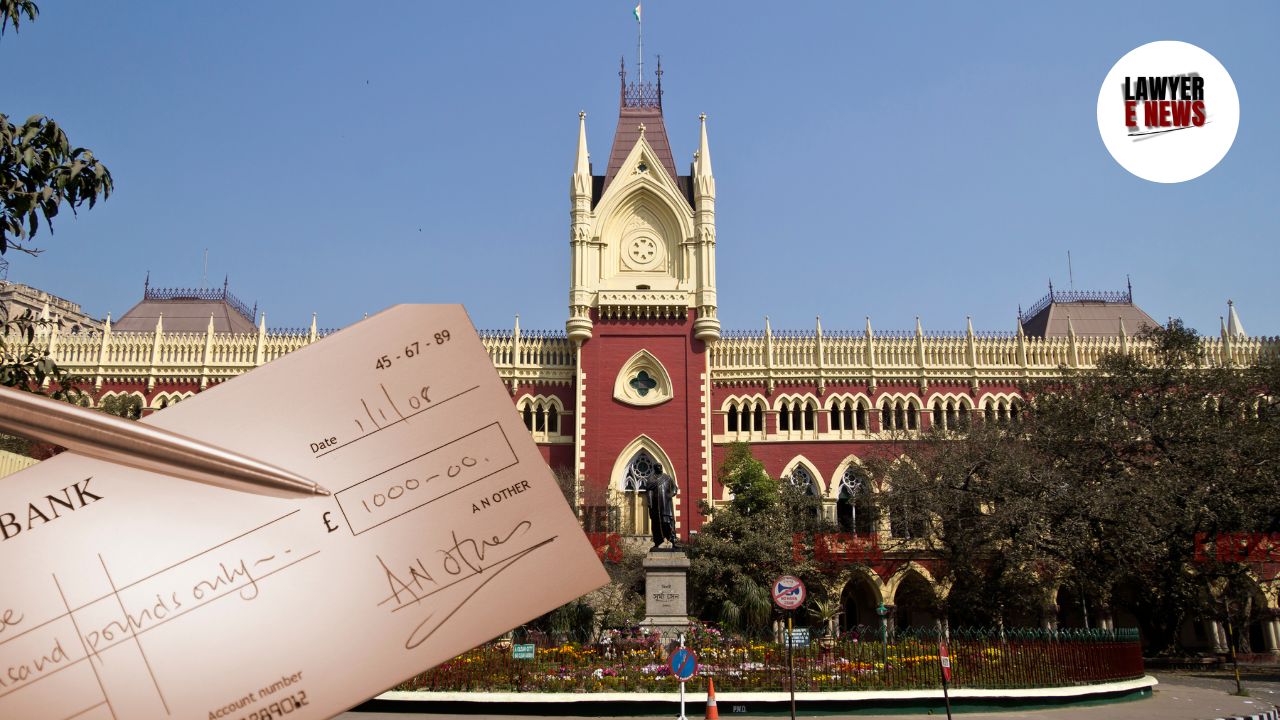-
by Admin
15 February 2026 5:35 AM



On September 13, 2024, the Calcutta High Court, presided over by Justice Ajay Kumar Gupta, delivered a significant judgment in the case of A.T. Deb @ Ashutosh Deb vs. West Bengal Essential Commodities Supplies Corporation Ltd. The court upheld the order passed by the Learned Chief Judge, City Sessions Court, Calcutta, which affirmed the Metropolitan Magistrate's decision to reject an inquiry under Section 202 of the CrPC before issuing a summons in a case under Section 138 of the Negotiable Instruments Act, 1881.
The case originated when the West Bengal Essential Commodities Supplies Corporation Limited filed a complaint against A.T. Deb, alleging the dishonour of 22 cheques amounting to ₹5,17,00,000 issued by the petitioner to discharge existing liabilities. These cheques were dishonoured due to "insufficient funds." The Magistrate issued a summons to the accused, and the petitioner subsequently requested an inquiry under Section 202 CrPC, which was rejected. The petitioner appealed against this order, but the appeal was dismissed, leading to this revision application before the High Court.
The primary legal issue revolved around whether an inquiry under Section 202 CrPC was mandatory before issuing process against the accused, especially when the accused resided beyond the Magistrate's jurisdiction. The petitioner argued that as per the Hon’ble Supreme Court's decision in Suo Motu Writ Petition (Cri) No. 2 of 2020, such an inquiry was mandatory in nature. The petitioner's counsel also cited various judgments emphasizing the necessity of a Section 202 CrPC inquiry to prevent harassment of individuals residing outside the court's jurisdiction.
Justice Ajay Kumar Gupta, after reviewing the facts, legal provisions, and relevant judgments, held that:
Applicability of Section 202 CrPC: The court noted that the amendment to Section 202 CrPC mandates an inquiry where the accused resides outside the jurisdiction. However, in cases under Section 138 of the NI Act, especially when supported by affidavit evidence under Section 145 of the NI Act, the Magistrate can issue process without a Section 202 CrPC inquiry.
Previous Rulings: The court referred to the Sunil Todi and Ors. vs. State of Gujarat & Anr. case, where the Supreme Court held that Section 202(2) CrPC is inapplicable to complaints under Section 138 in respect of the examination of witnesses on oath. The affidavit evidence is sufficient to establish grounds for proceeding.
Role of Magistrate: In this case, the Magistrate examined the complaint, the affidavit, and supporting documents before issuing the summons. The High Court found no infirmity or jurisdictional error in the Magistrate's order.
Public Servant Exception: The court observed that the complainant was a public servant acting in the discharge of official duties, and the examination under Section 200 CrPC was rightly waived.
The Calcutta High Court dismissed the revision application, upholding the decisions of the lower courts. The court emphasized that in cheque dishonour cases under the NI Act, the inquiry under Section 202 CrPC is not mandatory if the complaint is supported by affidavit evidence and the Magistrate is satisfied with the available materials. The decision reaffirms the scope of Section 202 CrPC in the context of NI Act cases, ensuring a balance between expeditious trials and the protection of accused individuals.
Date of Decision: September 13, 2024
A.T. Deb @ Ashutosh Deb vs. West Bengal Essential Commodities Supplies Corporation Ltd.
